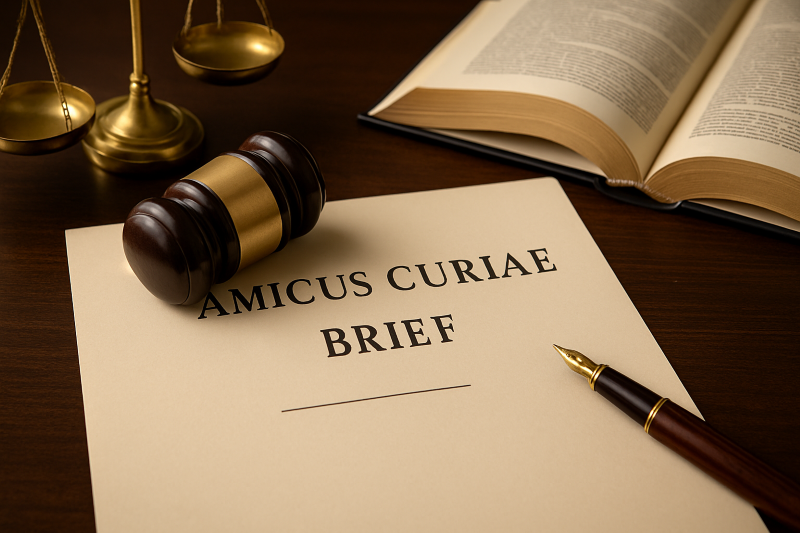
When high-stakes cases reach the appellate level, particularly in the U.S. Supreme Court, the courtroom drama extends beyond the direct parties involved. Enter the amicus curiae brief—Latin for “friend of the court.” These briefs, often filed by individuals, organizations, or governments not directly involved in the lawsuit play a pivotal role in shaping judicial reasoning.
The Role of Amicus Curiae Briefs in the Legal System
An amicus curiae brief is a legal document submitted by a person or group not a party to the case but who has a strong interest in the subject matter. The purpose of the brief is to assist the court by providing information, expertise, or insights relevant to the issues under review.
While amicus briefs are most commonly associated with the U.S. Supreme Court, they can also be filed in lower appellate courts and even in state supreme courts. The rules governing their submission are outlined in Rule 37 of the Supreme Court Rules, which allows any disinterested party to file, so long as they offer valuable context beyond the arguments already presented by the primary litigants.
These briefs are especially common in constitutional, civil rights, regulatory, and high-profile business cases, where broader implications for policy and public interest are at stake.
Not Just for Lawyers: Trump's TikTok Amicus
Although amicus briefs are often submitted by legal advocacy groups or industry associations, anyone with standing and insight can technically file one. A recent and highly publicized example involves former President Donald Trump, who filed an amicus curiae brief opposing the TikTok ban passed by Congress and signed into law by President Biden.
In the brief, Trump—who had previously supported banning TikTok while in office—argued against the ban, stating that he wished to resolve the matter through political means if reelected.
Trump’s brief raised eyebrows not just because of the policy reversal, but also because the arguments contained little legal analysis, instead focusing on political and electoral considerations.
Legal Impact
Amicus briefs are not binding on the court and judges are under no obligation to consider them. However, they are frequently cited in major decisions when they add credible, well-reasoned arguments or supply essential data.
All information provided on Silblawfirm.com (hereinafter "website") is provided for informational purposes only, and is not intended to be used for legal advice. Users of this website should not take any actions or refrain from taking any actions based upon content or information on this website. Users of this site should contact a licensed Texas attorney for a full and complete review of their legal issues.
